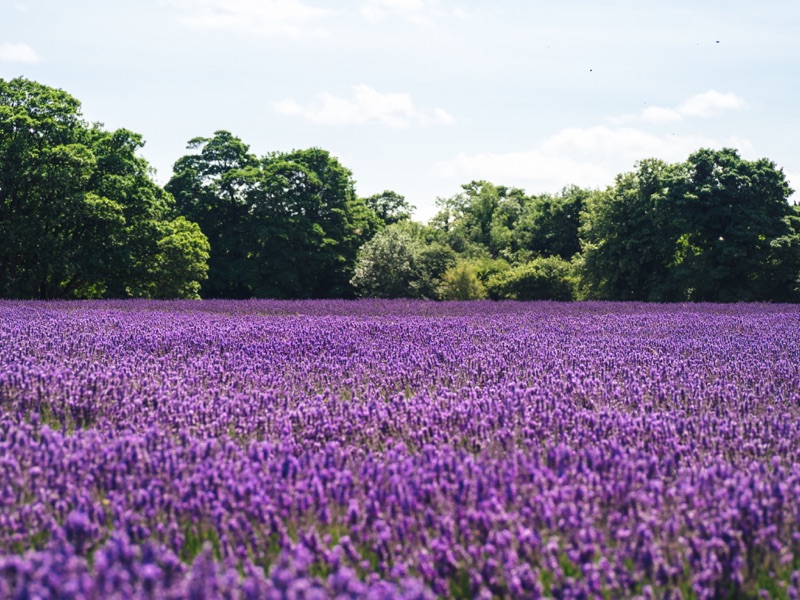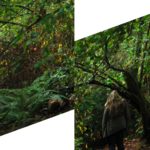We have seen the power of God’s Word break through the forces of evil to let the light of God’s love and truth into the soul. We have seen it organize the good chosen into life-giving systems, providing freedom of movement and expression. We have seen the Word draw people into close association with others who have had a similar experience and cleansing them all from the chaff and dross that encumbered their witness for Him. Now we shall observe a new dimension of the Word.
Day three is a transition in the Creation/Redemption Week. On this day the Creator changes gears from “organizing” to “filling full”. This is the day new life begins.
- It was for Jonah in the whale’s belly
- It was for Hezekiah on his death bed
- It was for the Jewish nation in Esther’s time
- It was the day Christ did His first miracle at the wedding feast
- It was the time for Christ’s triumphal exit from the tomb
And God said, Let the earth bring forth grass, the herb yielding seed, and the fruit-tree yielding fruit after its kind, whose seed is in itself, upon the earth: and it was so. Gen 1:11
Has it ever puzzled you why Moses said what he did here? What happened on this day made the whole earth a veritable paradise, a beautiful garden far surpassing any that man in his riches and glory has ever assembled. This day filled the whole earth with beautiful colors and titillating fragrances, with graceful vines and swaying grasses, with microscopic blossoms and majestic trees. Everywhere the eye rested new scenes of artistic grandeur and genius were seen. Yet not a word was said about any of it, just how the plants were classified. Art and beauty have their place, but that is not the focus here. The attention is drawn to the seed.
This focus on SEED is curious. Imagine for a moment a little conversation I am having with an angel as I observe Creation happening. Presently I am looking at an earth freshly bedecked with the richest and most glorious tapestry of grasses, shrubs, trees, and flowers.
The angel says, “Isn’t it beautiful?”
“Oh yes, Sir. It is all very beautiful! The way the Creator handled colors is so awesome!”
“Colors?”
“And those fragrances are so delicate yet captivating. Gentle strength I would call it, and the ingenious variet. . .”
“Colors? Fragrances? What are you looking at, Son?”
“Didn’t you just ask me if I thought all this foilage was beautiful?”
“I asked, ‘Isn’t IT beautiful?’. Everything you see, all the variety, all the colors and shapes and sizes, all the fragrances is an expression of seed. If you like what you see today, then tomorrow will be even better because each plant encapsulates it all into new seed. And future generations will reveal new varieties, new shapes, new colors, new flavors and aromas. Without seed all this would eventually become monotonous for the future would have no change.”
“You were asking then if I thought the seeds were beautiful?”
“You are getting closer, Son. Seeds aren’t usually very beautiful in themselves. But what they represent is! God’s Word was the first “seed” from which issued everything you see today. But what you behold is only a fraction of what can be and will be, for there is not one plant here that lives to itself. Their production of seed is the hope and inspiration and new life for tomorrow— just like the Word that brought them into being. Isn’t the Word beautiful and powerful and exciting?“
The seed is the Word of God. (Luke 8:11)
The theme for this day is NEW LIFE, and concerning that we are inadvertently directed past all the beauty, all the variety of shapes, forms, aromas and flavors, to that part of the plant in which the germ of life resides, the only part that guarantees the replication of the species— the SEED. Every single plant falls into one of three categories, each determined by how they display the seed.
- GRASS, where the seed is not readily noticed, not obvious to the eye– it matures after the edible portion.
- HERB YIELDING SEED, where the seed is the striking characteristic, the edible portion
- TREE, whose seed is enclosed in a fruit
CHRIST’S MINISTRY
Christ, the living Word (John 1:1) identified His work with the plant kingdom. He began His ministry turning water to wine. He ended His ministry eating bread and drinking wine with His disciples, and then encouraged them to remember Him whenever they did the same. “These things,” said He, “represent my work for you.” The bread comes from the second classification of plants, those that show the seed openly. The wine comes from the third classification, the fruit that surrounds the seed and makes it attractive. Both were given to man as his daily food (Genesis 1:29).
THE GIFT OF LIFE
This gift of LIFE is not something to be taken lightly, however. It calls from us responsibility and carefulness, patience and gentleness, sensitiveness and obedience to the laws by which it operates. Before God entrusts us with a great work He prepares us for it with smaller tasks.
If you have raced with men on foot, and they have wearied you, how will you compete with horses? And if in a safe land you fall down, how will you do in the jungle of the Jordan? Jeremiah 12:5 RSV
And so in His mercy and wisdom God begins our training with the most primitive forms of life, plants. Plants live by the rules, are responsive to gentle care, yet uncomplaining when they don’t get it. If pressed upon carelessly, they will not make a sound; however, when they weep many will make the air fragrant with their tears. They do not accuse, belittle, or humiliate. No matter how badly they are treated, plants always give the best they can, persistently filling the earth with color and delectable foods – irrespective of applause or censure. After sin some plants grew painful thorns and contained toxic fluids to remind man of his fall, but that wasn’t God’s original plan. Back in Creation Week, plants knew nothing of retaliation or revenge, but only of unselfishness and service.
The first occupation God provided for Adam and Eve was to care for the plants in His Garden. It would give them the training necessary to become rulers over themselves as well as over all of creation. And in our day the care of plants has no less importance, especially in the education of our youth. In itself the beauty of nature leads the soul away from sin and worldly attractions, and toward purity, peace, and God. For this reason the cultivation of the soil is beneficial work for children and youth. It brings them into direct contact with nature and nature’s God.1
In cultivating carefulness, patience, attention to detail, and obedience to law, gardening imparts a most essential training. Constant contact with nature – its mysteries and loveliness of, as well as with the tenderness called forth in ministering to these tender but beautiful objects of God’s creation – tends to quicken the mind and refine and elevate the character.2
Lesson for second part of Day 3: Do not despise small beginnings… when God is in them.
1 PH124 15 (Sp. Test., p. 60).
2 AH 143






